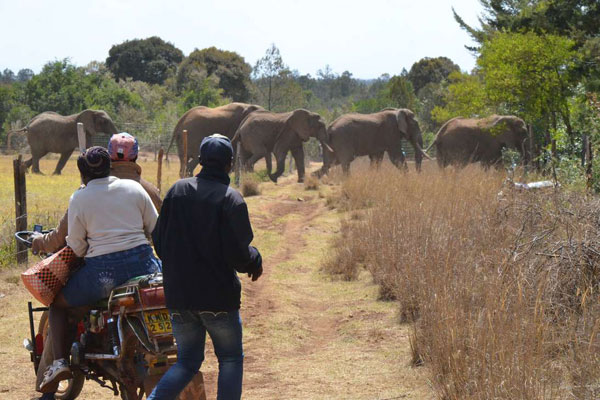
DAR ES SALAAM, Feb 22 (NNN-DAILYNEWS) — EFFORTS are underway to mitigate Human-Wildlife Conflict (HWC) in Tanzania as a means to ensure animals and tourism thrive while people live peacefully.
To that end, some activities have been prepared, one of them being a two-day training to journalists that will be done by three conservation experts from GIZ Mitigation of Human-Wildlife Conflicts (HWC) project, Journalists’ Environment of Tanzania (JET) and a government official from Tanzania Wildlife Authority (TAWA).
A statement released by JET Executive Director, John Chikomo on Wednesday, had it that the training will take place today and tomorrow at a Bagamoyo hotel, under the GIZ Mitigation of Human Wildlife Conflict in Tanzania Project.
It is specifically a tailor made training for journalists on HWC causes and mitigation strategies, multimedia storytelling and reporting on HWC, gender aspects in relation to HWC, community empowerment and HWC and community empowerment
Chikomo noted that the training will include 25 participants, and will be conducted as part of the project to ensure continuity, ongoing networking, and sustained engagement with topical issues in corridors such as human-wildlife crimes, community empowerment, climate change, gender aspects in relation to HWC, multimedia storytelling and reporting on HWC and biodiversity conservation.
“To build on the past efforts, JET will train journalists on subjects and issues that resulted from the previous engagements and trainings. The dynamics of conservation of biodiversity increasingly bring out additional issues and related to climate change consequences and adaptation, social behavior patterns and development activities identified and reported in the previous training need assessment, hence the need for more training with diversified topics that lead to achieving desired project objectives.,” he said.
That will include covering topics mentioned above such as human-wildlife crimes, community empowerment, climate change, gender aspects in relation to HWC, multimedia storytelling and reporting on HWC and biodiversity conservation and involvement of women and youth in conservation.
Furthermore, the journalists will also learn the concepts of resilience and ecosystem-based adaptation and how they are related to habitat connectivity at wider landscape scales.
The objectives of the training are to strengthen capacity of journalists and local media houses to report on the magnitude and mitigation measures of HWC effectively, accurately, and adequately in the country.
It is also aimed to increase awareness of the local communities on HWC issues in Ruvuma landscape and connect journalists with more resource persons in the conservation sector and media houses to increase their accessibility to accurate data and information on biodiversity conservation.
The expected outcomes of the journalists training are that Tanzanian journalists and local media houses are well trained to accurately report on HWC, have well informed stories on HWC content, with special focus on reducing the HWC impacts on livelihoods security of women at Ruvuma landscape, and community best practices, are published in diverse media channels at national and region level.
“The media actors of the Ruvuma landscape promote HWC community awareness and effective participation (e.g., safety behavior, mitigation methods, incident reporting channels) through accurate reporting on local media channels. The media actors of the Ruvuma landscape apply gender-sensitive reporting on HWC content,” he said.
The participants have been selected by JET through the application process. There will also be supporting staff from JET, GIZ and several resource persons. Thus, there will be 37 people altogether who will participate in the training with different roles.
A statement released by GIZ noted that in recent years, human-wildlife conflicts have become a serious problem. In the face of a rapidly growing population, demand for land and natural resources for livestock, agriculture, and infrastructure has increased. This has led to a higher exposure of people and their livelihoods to wildlife damage.
“Especially in the fringes of protected areas and wildlife corridors, there has been a sharp increase in property damage and personal injury from wildlife. Retaliation responses pose a threat to species conservation. As tourism revenue and other benefits are not allowed to reach the communities, conservation is often perceived as a restriction and suffers from low acceptance,” the statement said. — NNN-DAILYNEWS



